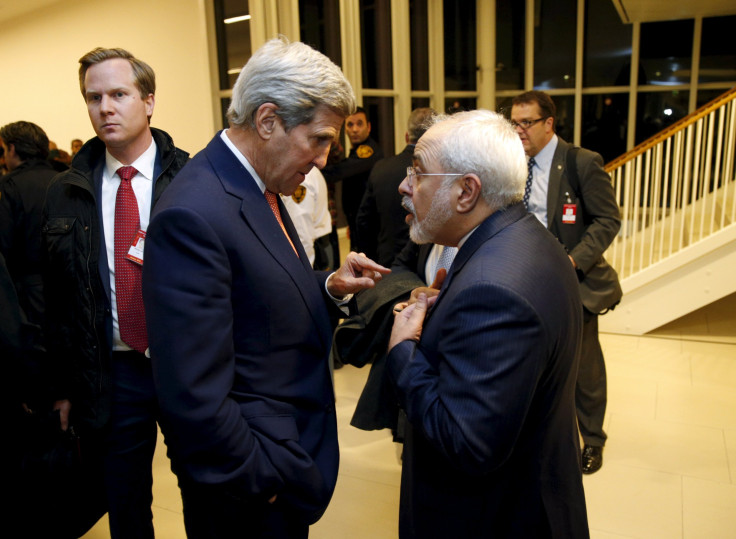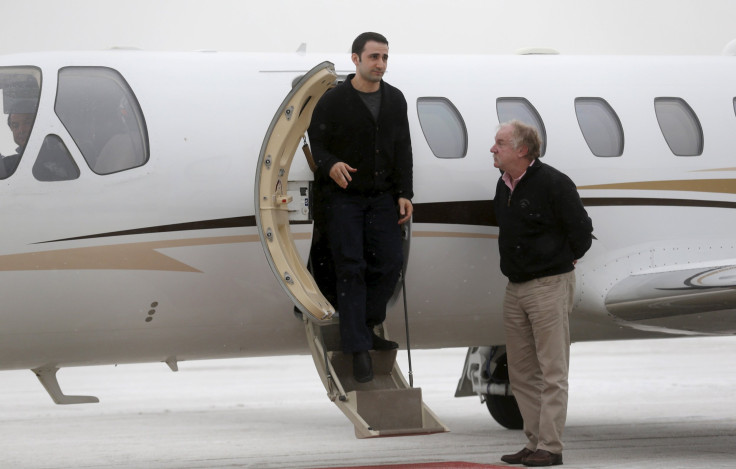Did US Bribe Iran To Release Americans? $400 Million, Report Says

On January 16, when Iran released four U.S. citizens who had been arrested and imprisoned in the country, the administration of President Barack Obama agreed to release seven Iranians either jailed in the U.S. or facing charges. But according to a report Tuesday, there could be more to the seemingly simple prisoner swap deal than meets the eye.
January was a busy time for U.S.-Iran relations, with the implementation of the nuclear deal Iran had reached in July 2016, the prisoner swap, as well as a settlement between the two countries of a dispute over a failed arms deal signed almost 40 years ago. This settlement amounted to $1.7 billion that the U.S. had to pay Iran.
A report in the Wall Street Journal said that around the time of the prisoner swap in January this year, the U.S. government “secretly organized an airlift of $400 million worth of cash to Iran.” U.S. and European officials with knowledge of the matter told the newspaper that “euros, Swiss francs and other currencies were flown into Iran on an unmarked cargo plane,” and that the money came “from the central banks of the Netherlands and Switzerland.” U.S. law makes it illegal to conduct transactions with Iran in dollars.
While U.S. officials have acknowledged that Iranian negotiators discussing the prisoner swap wanted some money, if only to show they had gained something by way of a ransom, they also stressed that no money was actually paid for the Americans’ release.
State Department spokesman John Kirby said: “The negotiations over the settlement of an outstanding claim… were completely separate from the discussions about returning our American citizens home. … Not only were the two negotiations separate, they were conducted by different teams on each side, including, in the case of The Hague claims, by technical experts involved in these negotiations for many years.”
Iran had taken the U.S. to court at the Hague, asking for more than $10 billion, in a case officials in Washington said they were certain to lose. The $400 million sent to Iran was only a part of the $1.7 billion settlement, they insisted.
The Obama administration has maintained it would not pay ransoms to anyone for the release of U.S. hostages. However, various Republican senators were quick to react to the report.
Sen. Tom Cotton, R-Ark, who also opposed the Iran nuclear deal fiercely, accused Obama of paying “a $1.7 billion ransom to the ayatollahs for U.S. hostages” and said the “break with longstanding U.S. policy put a price on the head of Americans,” prompting Iran to continue arresting more U.S. citizens.
Two more Iranian-Americans have been arrested by Iran in the time since the cash payment was made, according to the Journal.

Rep. Bill Johnson, a Republican from Ohio, said: “For decades, American foreign policy has been to not pay ransom for hostages, because to do so only encourages more kidnapping of Americans. … Not only did the Obama administration violate this common-sense policy, it did so secretly. If true, this would make the Iran-Contra affair look like jaywalking.”
However, at a conference in Aspen, Colorado, last week, CIA Director John Brennan said evidence showed Iran was using most of the money it received after sanctions were lifted for development work in the country. “The money, the revenue that’s flowing into Iran is being used to support its currency, to provide moneys to the departments and agencies, build up its infrastructure,” he said.
This is not the first time that the U.S. policy of not paying a ransom to secure the freedom of its citizens seems murky. In 2009, three American hikers were arrested in Iran after they crossed into the country mistakenly from Iraq. The government of Oman had secured the release of all three at the time through negotiations that involved the release of four Iranian nationals from the U.S. and the U.K., as well as payment of $500,000 for each of the three Americans.
© Copyright IBTimes 2025. All rights reserved.





















